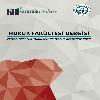ALMAN VERGİ VE İDARE HUKUKUNDA RE’SEN ARAŞTIRMA İLKESİNİN MODERN YÜZÜ
Re’sen araştırma ilkesi, Alman idare hukukunun, temelleri anayasa hukukunda bulunan geleneksel bir unsurudur. Bununla birlikte, Temmuz 2016’da yürürlüğe giren Vergi Usulünün Modernleştirilmesi Hakkında Kanun, münhasıran otomasyon esasına dayanan ve dosyaların bir memur tarafından incelenmesine (Vergi Kanunu m. 155/4) gerek bırakmayan yeni vergi hesaplama modeliyle, İdari Usul Kanunu’nun 1977’den beri süregelen geleneğini sarsmıştır. Bu modelde, elektronik vergi beyannamelerini inceleyen, algoritmalarla çalışan ve risk yönetim sistemi adı verilen bir bilgisayar sistemi kullanılmaktadır (Vergi Kanunu m. 88/5).
Bu çalışmanın temel sorusu şudur: Kanun koyucu yeni düzenlemeyle re’sen araştırma ilkesinden şahsi beyana dayalı sisteme mi dönmüştür? Bunun cevabı “hayır!”dır. Re’sen araştırma ilkesi, vergilendirmeye esas teşkil eden olguları elde etme usulleri bakımından, her zaman özel bir statüsü olan toplu vergilendirmeden tutun, mahkeme tarafından verilen iltica başvurusu kararlarına kadar geniş bir yelpazeyi kapsayabilir.
Dosyaların bir bilgisayar tarafından işlemden geçirilmesi ve artık belge sunulmaması; bunun yerine belgelerin şüpheli durumlar için saklanmasının gerekli olması olguları, tek başlarına köklü bir rejim değişikliği yapıldığının söylene- bilmesi için yeterli değildir. Vergi idaresinin personel sayısı, bu görevlerin yerine getirilmesini imkansız kılacak ölçüde azaltılamaz. Anayasa hukuku ilkeleri olan kanunilik ilkesi ve vergilendirmede eşitlik ilkesi, bu bağlamda az vergilendirmeyi yasaklamakta ve değerleme zorunluluğu getirmektedir.
Anahtar Kelimeler:
Vergi idaresi, re’sen araştırma ilkesi, dijitalleşme, şahsi beyan, risk yönetim sistemleri
MODERN FACES OF THE PRINCIPLE OF PUBLIC INVESTIGATION IN GERMAN TAX AND ADMINISTRATIVE LAW
The principle of public investigation is a traditional and constitutionally anchored component of German administrative law. At the latest, the Act on the Modernisation of the Taxation Procedure of July 2016 has startled the since the entry into force of the Administrative Procedure Act in 1977 outdated tradition with the new model of tax assessments, which are carried out exclusively on an automated basis, provided there is no cause for an individual case to be processed personally by an official (section 155 para. 4 of the Fiscal Code), and, as a means of checking electronically enriched tax returns, use so-called risk management systems, i.e. computer systems that work with algorithms (section 88 para. 5 of the Fiscal Code).
The main question of the present article is: Has the legislator thus turned away from the principle of official investigation to a self-assessment system? The answer is: no! The principle of public investigation is capable of covering a broad spectrum of methods for determining the facts relevant to a decision, ranging from mass tax administration, which has always had a special status, to decisions by courts dealing with facts on asylum applications on the other hand.
The mere fact that average cases are processed by computers and that supporting documents are no longer submitted but kept for further inquiries is not enough for a fundamental change of regime. The number of staff in the tax administration must not be reduced to such an extent that these tasks can no longer be performed. In this respect, the constitutional principles of legality and uniformity of taxation result in a prohibition of insufficient action and an evaluation requirement.
Keywords:
Tax administration, principle of investigation, digitalisation, self-assessment, risk management systems,
___
- ***********
- ISSN: 2687-3923
- Yayın Aralığı: 2
- Başlangıç: 2019
- Yayıncı: Türk-Alman Üniversitesi
Sayıdaki Diğer Makaleler
ALMAN VERGİ VE İDARE HUKUKUNDA RE’SEN ARAŞTIRMA İLKESİNİN MODERN YÜZÜ
TELİF HAKLARI VE KELEPÇELEME SÖZLEŞMELERİ
İDARENİN SÖZLEŞME AKDETME ZORUNLULUĞU VE SÖZLEŞME GÖRÜŞMELERİNDEN DOĞAN SORUMLULUĞU
YABANCILAR VE ULUSLARARASI KORUMA KANUNUNDAKİ GÜNCEL GELİŞMELER HAKKINDA GENEL DEĞERLENDİRME
